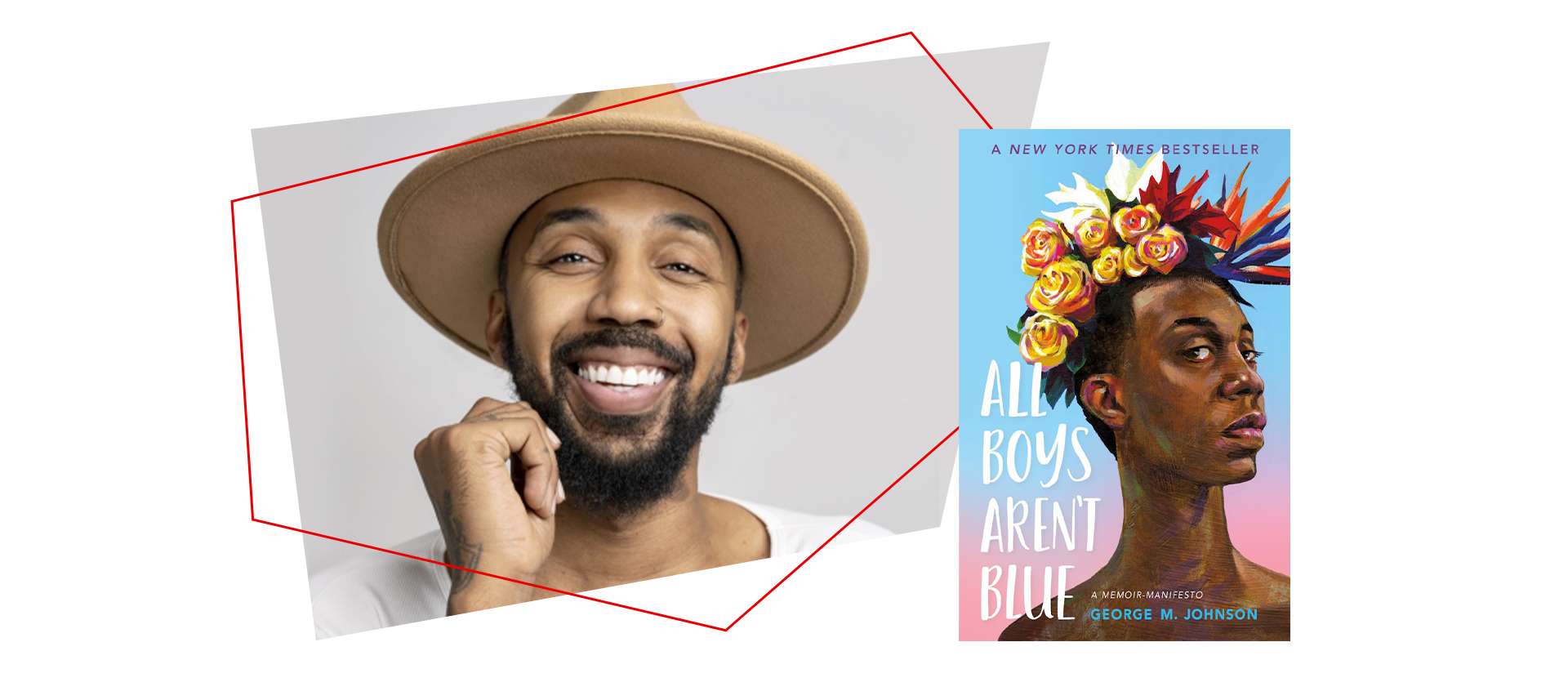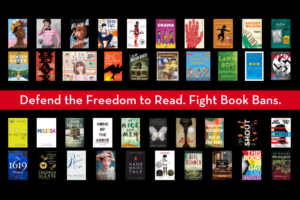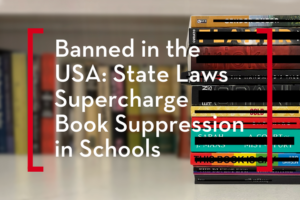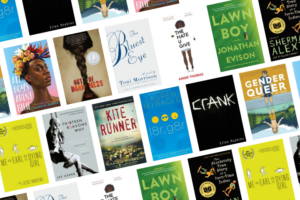
In Conversation With George M. Johnson
By Lisa Tolin
Even before George M. Johnson wrote All Boys Aren’t Blue: A Memoir-Manifesto, they knew it was likely to draw the attention of book banners.
At the time, Angie Thomas’ The Hate U Give and Nic Stone’s Dear Martin were facing complaints in Texas. Johnson knew their book had similar subject matter – plus additional, queer content. They thought it didn’t stand a chance.
At first, the response to All Boys Aren’t Blue was purely positive. It was a New York Times bestseller and a best book of the year from Amazon, Kirkus Review, and the New York and Chicago Libraries. Then came a complaint in Kansas City in the fall of 2021. Within a matter of weeks, the book had been pulled in multiple counties and Johnson was the subject of a criminal complaint in Florida.
All Boys Aren’t Blue was the second most banned book of the 2021-22 school year, trailing only Maia Kobabe’s Gender Queer. Johnson is now one of the author plaintiffs in PEN America et al v. Escambia County School District, a federal lawsuit that charges the district violated constitutional rights to free speech and equal protection under the law. They are joined as plaintiffs by parents in the district and the publisher Penguin Random House.
“I joined this lawsuit because it is important that precedents be set protecting the freedom to read for our youth during an unprecedented time of book banning,” they said. “The loudness of the vindictive non-empathetic minority cannot outweigh the rights of the majority who deserve books that reflect their purpose in the world.”
In conversation with PEN America’s Allison Lee before a panel on book bans at the Los Angeles Times Festival of Books, Johnson talked about why they wrote All Boys Aren’t Blue and what they would say to teens who can no longer access the book.
What inspired you to write All Boys Aren’t Blue?
I was inspired to write All Boys Aren’t Blue because I once was a teenager who didn’t feel seen in the world who didn’t feel like I had any representation in the world. I was unfortunately forced to read books that had characters that didn’t have my life experience and didn’t give me the resources or any type of guidance on how I was going to navigate young adulthood as I went into adulthood as a Black, queer person.
And so, All Boys Aren’t Blue became my love letter to write back to the 5-year-old that I was, that knew I was different, the 10-year-old that had to choose safety over happiness, the 15-year-old who simply just wanted to go to prom or date a boy, and the 21-year-old who really had to enter the world and figure it out with no resources. And so I wrote it to prevent the next me from not having representation of themselves in the world.
What would you say to someone who thinks that your book is not appropriate for kids?
What I tell people, when they question whether my book is appropriate for young adults, is what is the actual difference between a 17-year-old in high school and a 17-year-old in college? There realistically is no difference between them. My book is geared towards 14- to 18-year-olds, because 14- to 18-year-olds are already dealing with the heavy topics in my book. My book does not introduce them to these things. It is reinforcing them with the knowledge and the tools as they are already dealing with these things such as racism and anti-Blackness and homophobia and rape culture in this country.
I find it very interesting that, you know, we can take people’s rights away, such as abortion rights, but then also think that 14- to 18-year-old girls shouldn’t also have the right to even know about sex, and even read about sex while also saying they have no bodily autonomy. And so that is what our books give them. It gives them the power and the resources to fully understand who they are. And at that age, it is most important, as they are young, developing minds who will one day become the future leaders in this country.
What message do you have for those who can’t access your book?
Well, I found out that there’s some piracy stuff going on around books where you can actually find some of the books illegally. You know, I’m one of those type of people that’s like, as long as you get your hands on it, get your hands on it. So I’m not advocating for it, but I’m also not not advocating for that.
But I also think there are other resources that are being created for the students to be able to get the materials. Try ebooks; try audio books. There are other ways to get them. And as authors, some of us have made movies of our books. Some of us have done dramatic readings, as I did with my book. So there are other mediums and formats that we’re figuring out to still give you access to the material. So just research it, and it’s out there.




